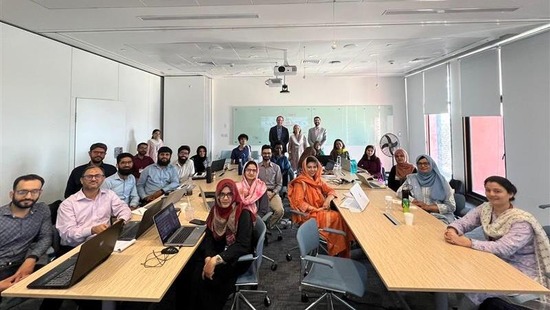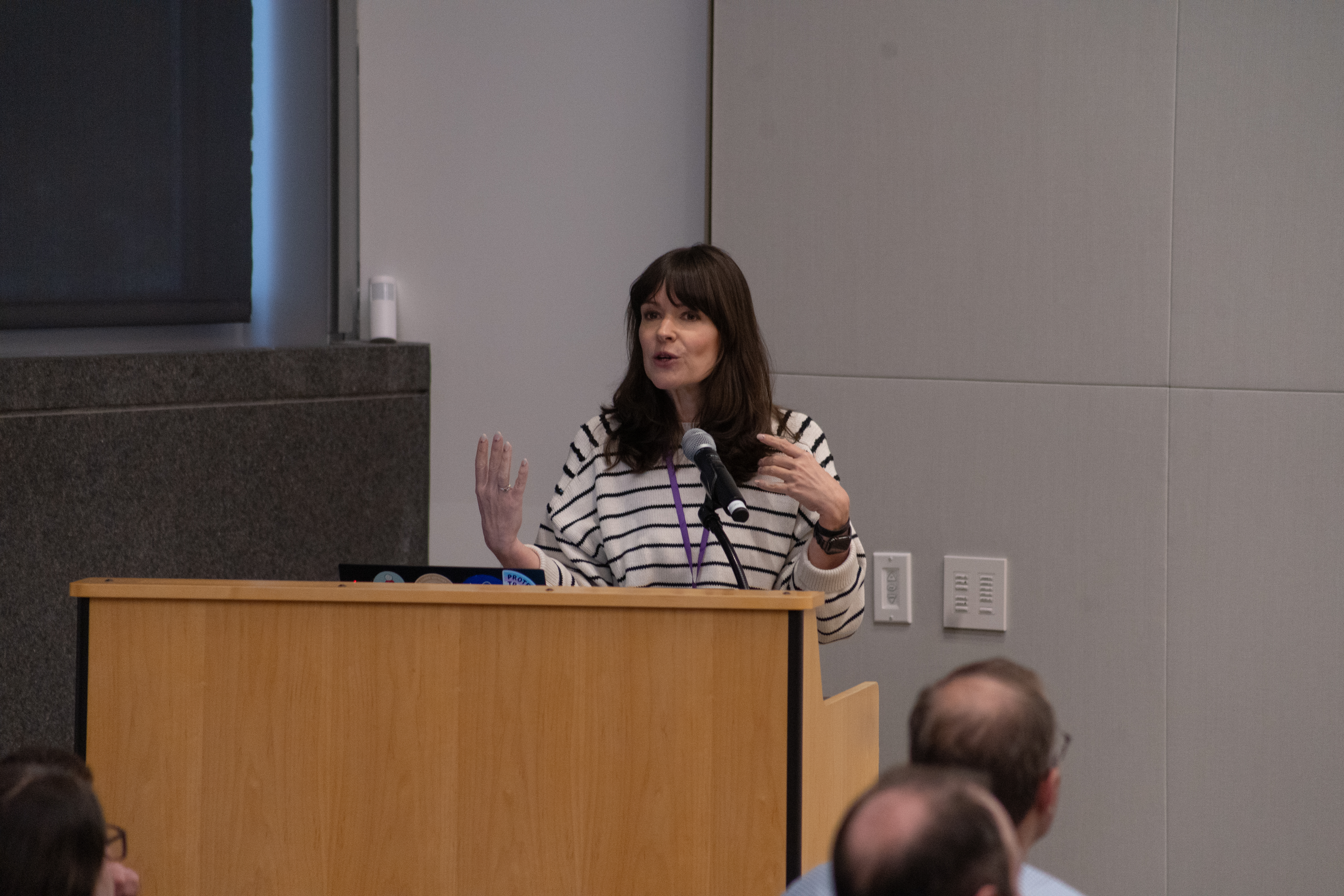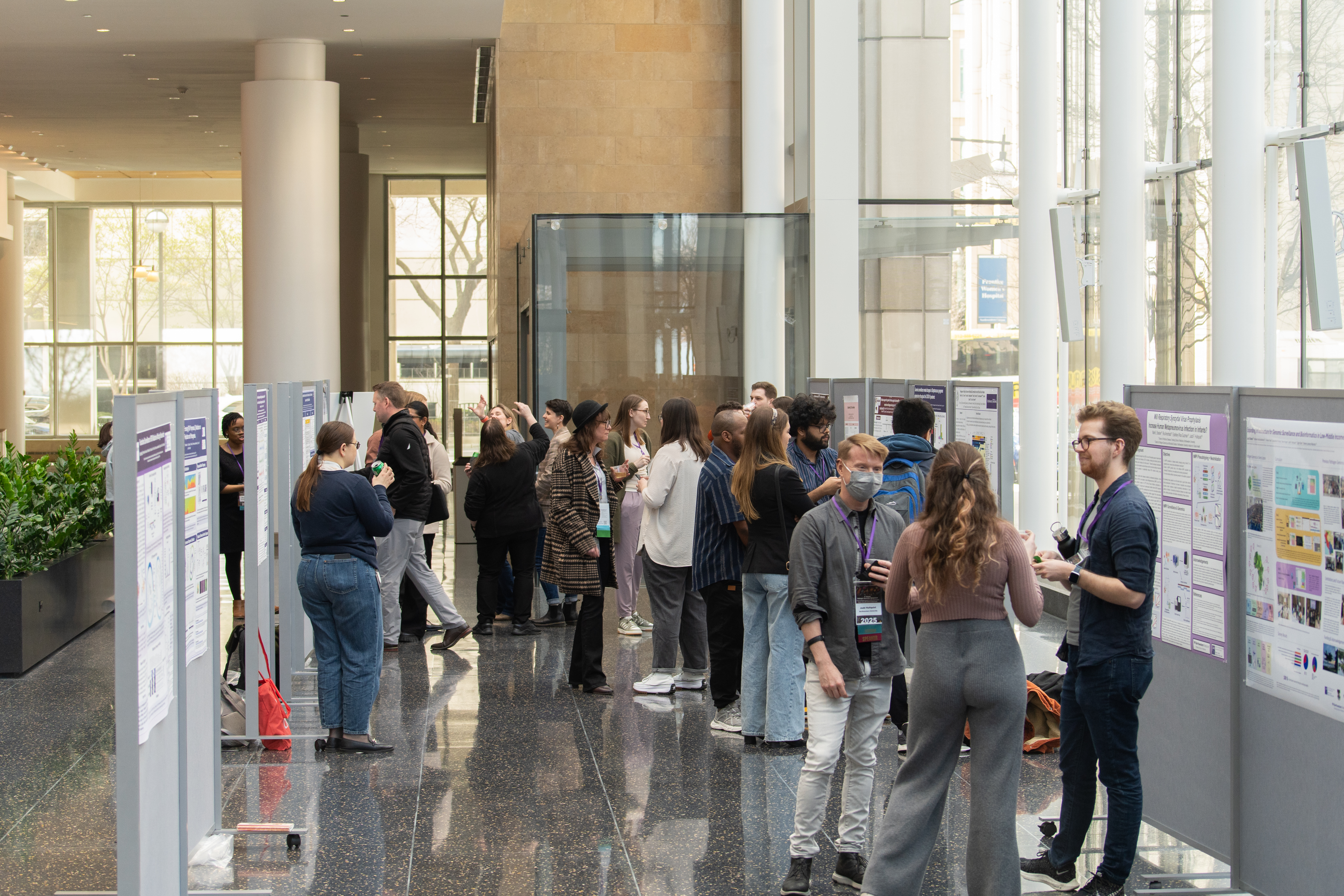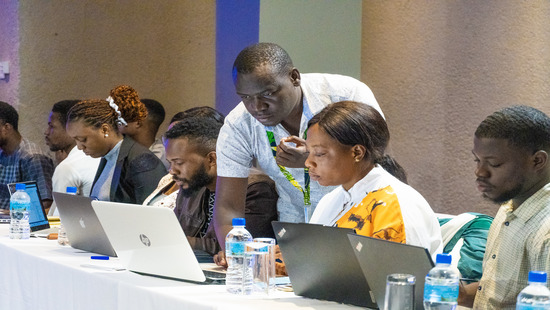Exploring the Emergence of Fungal and Bacterial Infections in Pakistan

Northwestern investigators, faculty, students and community partners shared and celebrated pathogen genomic research, education and outreach during the 4th annual Pathogen Genomics Symposium organized by the Robert J. Havey, MD Institute for Global Health.
This year’s event, held April 7 in the Simpson Querrey Biomedical Research Center, featured research talks, poster presentations and a keynote address, with opening remarks by Egon Ozer, MD, PhD, assistant professor of Medicine in the Division of Infectious Diseases and director of the Center for Pathogen Genomics and Microbial Evolution (CPGME) at the Havey Institute for Global Health.

The presentations showcased research discussions from five featured presenters and a keynote speaker, as well as a poster session in which attendees learned about new pathogen genomics and microbial evolution research from Feinberg students, faculty and community partners. Top posters were selected by CPGME leadership for flash talk presentations.
“Our Pathogen Genomics Symposium this year featured speakers and poster presenters from Northwestern University, Rush University, the University of Iowa, Washington University, the Gates Foundation and others,” Ozer said.
Bin He, PhD, assistant professor of biology at the University of Iowa, kicked off the event with the presentation Tough and Sticky – Evolution of Stress Response and Adhesin Gene Family in Pathogenic Yeasts. Alan Hauser, MD, PhD, professor and vice chair of Microbiology-Immunology, followed with his presentation An Ounce of Prevention: Understanding Pseudomonas aeruginosa Carriage in the Gastrointestinal Tract.
The morning presentations continued with three more speakers. Drew Schwartz, MD, PhD, assistant professor of pediatrics in the division of infectious diseases at Washington University presented Development and Disruption of the Gut Microbiome in Bacterial Infections During Infancy followed by the presentation Intra-host Evolution of SARS-CoV-2 in Antiviral Resistance and Neuroinvasion by Judd Hultquist, PhD, assistant professor of Medicine in the Division of Infectious Diseases and of Microbiology-Immunology. Rounding out the morning presentations was Natasha Halasa, MD, MPH, Craig Weaver Professor of Pediatrics at Vanderbilt University, with How to Incorporate Genomic Sequencing in Infectious Diseases Surveillance Studies.

The event was organized by CPGME leadership, which includes Ozer, associate director Hultquist and Ramon Lorenzo-Redondo, PhD, assistant professor of Medicine in the Division of Infectious Diseases and bioinformatics director.
"Our annual Pathogen Genomics Symposium really fits an unmet need to bring together researchers in this area from across Northwestern and Chicago to learn about each other's work, exchange ideas and form new collaborations," Hultquist said.
“This year's symposium featured participants and research from multidisciplinary projects,” Lorenzo-Redondo said. “We always look forward to the high caliber work presented at our annual event.”
Jennifer Gardy, PhD, deputy director of Malaria Surveillance, Data, and Epidemiology at the Gates Foundation, delivered the keynote address Bug Bytes: How Malaria Parasite & Vector Data Are Being Applied in Global Health.
The event concluded with a poster session, which highlighted pathogen genomics research and advances in microbial evolution studies.

"We're hoping to build off of the success of this symposium to build an engaged community of researchers dedicated to translating our collective discoveries in pathogen genomics to new diagnostics and therapies that improve patient health," Hultquist said.
“We are extremely excited about the cutting-edge research being performed within the center and also among our esteemed colleagues and partners that apply genomics technologies and techniques to study viral, bacterial, fungal and parasite pathogens causing human infections around the world,” Ozer said. “This yearly symposium provides the perfect opportunity for us to come together and learn from each other.”
Poster Presentation Award Recipients
Judd Hultquist, PhD; Egon A. Ozer, MD, PhD; and Ramon Lorenzo-Redondo, PhD are members of the Robert J. Havey, MD Institute for Global Health and Northwestern University Clinical and Translational Sciences Institute (NUCATS). Ozer and Lorenzo-Redondo are members of Institute for Public Health and Medicine (IPHAM).
To learn more about the Center for Pathogen Genomics and Microbial Evolution, visit their website.
For details on events, news and funding opportunities, sign up for the Havey Institute for Global Health newsletter.

